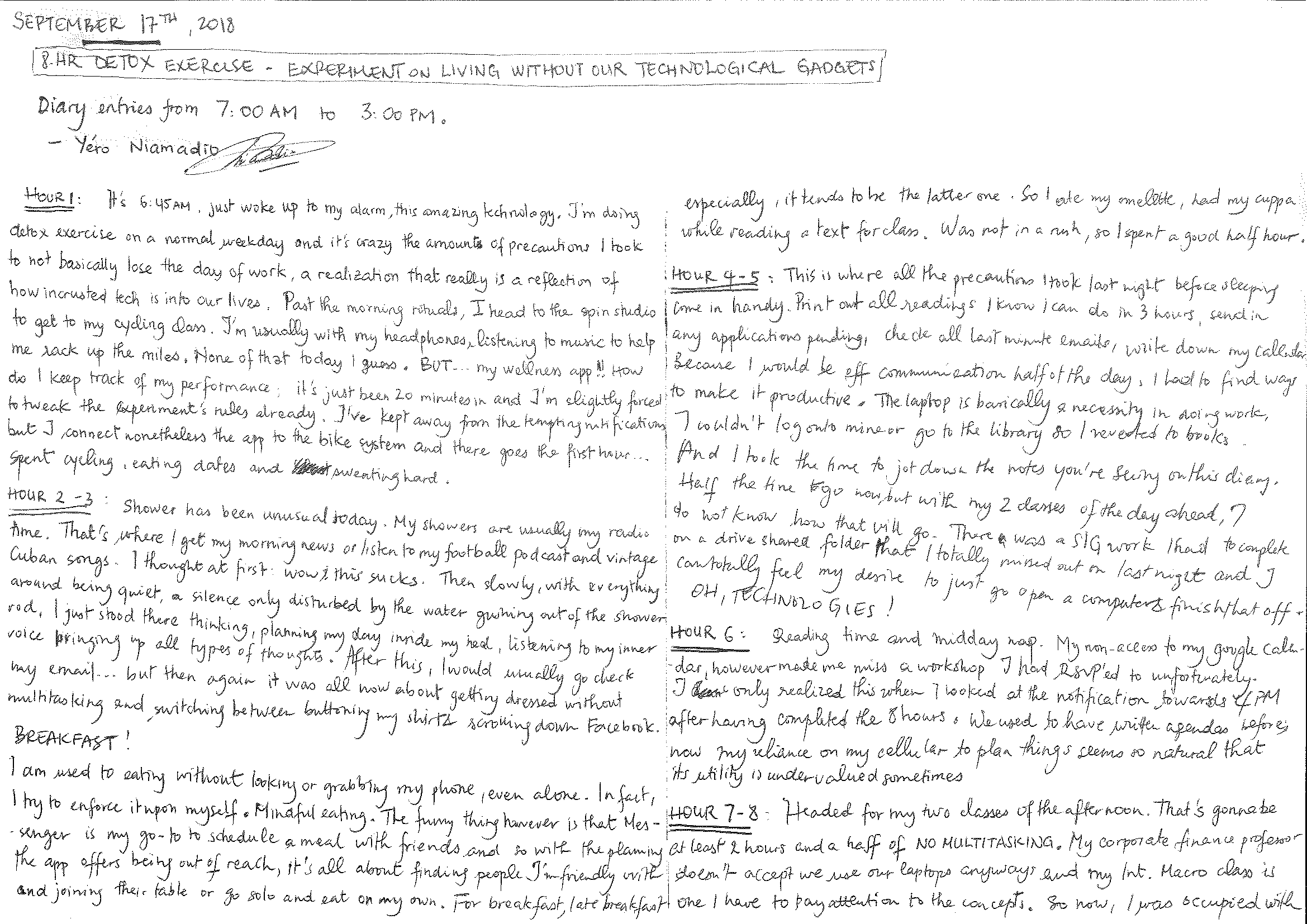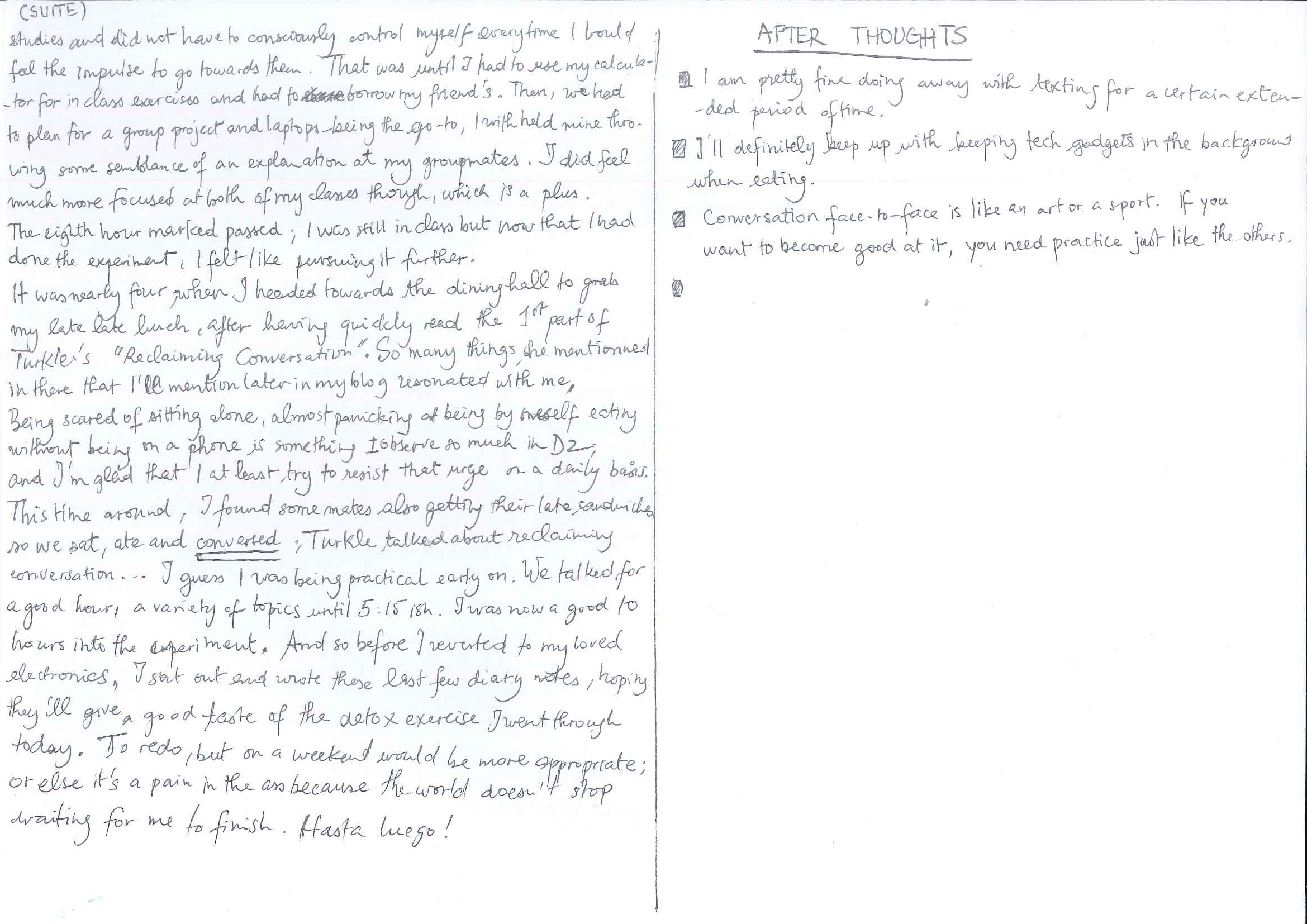Off the technological gadgets
Embarking on this digital detox experiment was quite peculiar. I completed it on a working day instead of an off day and I ensured to take as many precautions as I could the night before starting out. I printed out all the long readings I could squeeze in, copied down my Google calendar events, read out all last minute emails and finished out any pending piece of urgent work I could have finished the next day but couldn’t afford to now. And so I ended up going to bed late, set to wake up around 6.45am and start the 8-hour against-the-clock countdown.
The absence of technology surely did affect my experience, in fact it occurred just 20 minutes in. Morning cycling class without my earphones and Youtube playlist felt very different. Instead of songs, I listened to my breath and the monotonic sound of the bike wheels rotating, trying to rack up the miles. With no distraction, the ride becomes much more focused but pedaling also becomes very conscious. I achieved my longest ride yet so far. The morning shower where I usually have my radio blast in the bathroom felt very quiet, a silence only broken by the water falling on top of my head. And when my brain isn’t working at listening to the news or my football podcast while showering, the non solicitation of my hearing senses had me having all types of thoughts going through my head. Like Turkle mentioned in Reclaiming Conversation, taking time alone with our own thoughts becomes pretty limited without us realizing it with all the technology at our disposition; the gadgets are always readily available to take us on a virtual experience, which is near irresistible, by design. But then again, computers offer the illusion of companionship without the demands of friendship and the illusion of friendship without the demand of intimacy (Turkle, 7).
This non-irresistibility aspect is proven further when the author states that recent research showed that people were uncomfortable if left alone with their thoughts, even for a few minutes (Turkle, 10). Practical examples of this situation are daily occurrences, especially in instances where a person is sat and has to perform something non-intellectual, as is the case with eating. My dining hall observations of people sitting by themselves during meals made it crystal clear that a good majority end up on their phones, and some never leave their eyes off it, even when bringing the food up to their mouths. I myself ate alone at breakfast and had a late lunch long conversation with friends, both instances which I exhaustively detail in my diary entries. Using my phone in such instances is something I impose upon myself to limit and so, it was not too hard not to pull my phone, even to check the time. I got to appreciate my wristwatch. My theory about sitting alone and pulling up a phone is to give the impression, not all the times but often, that one is busy doing something else besides eating and not wasting time that could be used to multitask, even if that meant scrolling down Facebook infinitely. Alternatively, it is to not meet other people’s looks because well, sitting alone can be interpreted very differently by various people, usually not so positively.
Finally, I wanted to zero in on an interesting comment Turkle makes that has much relevance to the academic environment we are in. She says that “these days, faculty are less deferential about the use of devices during class by clearly stating classroom guidelines at the beginning of the semester that include a no-laptop and phone policy”. In one of the classes I had during the detox experiment, my professor did exactly just that at the beginning and has seemed very strict about it. This is key, because just like putting a limitation on when we can use our devices can be so useful in getting everybody involved and fostering in-class conversations, we each need to self-discipline ourselves to make the right use of our communication devices and still engage in meaningful human conversations and communications at large to grow emotionally and empathetically as human beings.


-Yero Niamadio